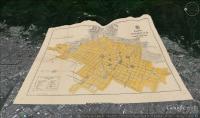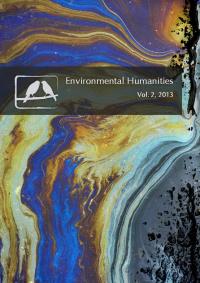Show search results for
"Jane Smiley’s A Thousand Acres (1991) and Archival Reimaginations of Eco-Cosmopolitanism"
This article blurs the boundaries of literature, agriculture, public history, grassroots political activism, and public policymaking in order to problematize the current eco-cosmopolitan trajectory of ecocritical theory.
"Ecological Community, the Sense of the World, and Senseless Extinction"
Mick Smith examines how a posthumanist notion of ecological community might attempt to address questions concerning extinction.
"'Redneck, Barbaric, Cashed Up Bogan? I Don’t Think So': Hunting and Nature in Australia"
Michael Adams reviews initial research exploring non-Indigenous hunting participation and motivation in Australia, as a window into further understanding connections between humans, non-humans, and place.
"Wonders with the Sea: Rachel Carson’s Ecological Aesthetic and the Mid-Century Reader"
Hagood looks at Rachel Carson’s earlier popular publications on the natural history of the oceans and their impact on Silent Spring (1962).
"The Making of an Environmental Hero: A History of Ecomodern Masculinity, Fuel Cells and Arnold Schwarzenegger"
Hultman’s paper introduces and investigates the notion of ‘ecomodern masculinity,’ through the assemblage of Schwarzenegger’s gender identity, environmental politics, and image in Sweden.
"'Without Evidence, There Is No Answer': Uncertainty and Scientific Ethos in the Silent Spring[s] of Rachel Carson"
Walker focuses on uncertainty as a boundary device that shapes scientific ethos in crucial ways and negotiates a relationship between technical science and public deliberation.
"At Home in the Great Northern Wilderness: African Americans and Freedom’s Ecology in the Adirondacks, 1846-1859"
Miller suggests a new heuristic, the ecology of freedom, which highlights past contingency and hope, and can furthermore help guide our present efforts, both scholastic and activist, to find an honorable, just way of living on the earth.
“Climate Blues: or How Awareness of the Human End Might Re-Instil Ethical Purpose to the Writing of History”
What does the possibility of an early end to human existence as part of a more general biotic extinction mean for the latter day writing of history?




